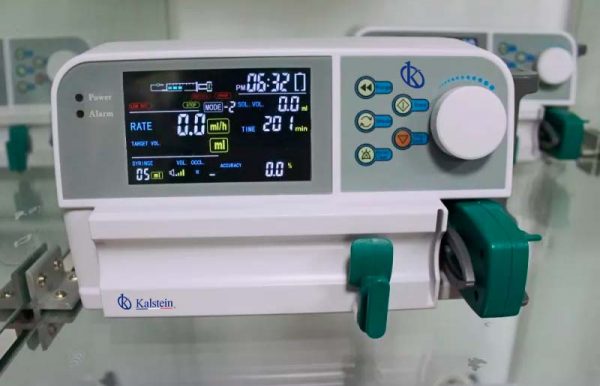The proper and safe administration of cancer drugs is a key challenge for cancer treatment teams. These drugs, while providing an opportunity to cure or control cancer significantly, often have serious or life-threatening effects, such as infections, myelosuppression, and alopecia. These drugs have been used for many years; however, the use has become even more demanding with the increase of antineoplastic drugs with high pharmacological activity.
In that context, health professionals have become increasingly aware of the need to administer antineoplastic drugs with top-quality drug delivery systems to maximize patient safety and minimize life-threatening side effects. This has led to the increasing use of infusion pumps for the administration of anticancer medicines.
What are infusion pumps and how do they help in the supply of medicines?
Infusion pumps are medical devices that are used for the continuous administration of medicines to patients. These devices are designed to provide accurate, uninterrupted dosing of drugs. This dosage can be precisely adjusted to provide the appropriate dose for each patient, allowing health care professionals to adjust the dose according to the patient’s response, as well as to ensure that the medicinal product is administered without interruption.
Infusion pumps can be programmed to provide drugs at regular intervals, which helps maintain a stable level in the blood, which is especially important when giving chemotherapy drugs. This helps to better control the toxicity and side effects of these medicines. In cancer treatment, this sustainability is especially important to maximize therapeutic benefits and minimize toxicity.
In addition, infusion pumps provide real-time information about the patient’s reaction, which helps the treatment team determine whether an anticancer drug is being well tolerated and whether a change in drugs is needed. This information can be used to monitor the patient’s condition, which is particularly useful in treating cancer patients.
What are the advantages of infusion pumps for the supply of antineoplastic drugs?
One of the advantages of infusion pumps is that they provide a safe and effective way to administer anticancer medicines. These pumps can be programmed to provide medicine only at a certain time, which means the medicine will be given when needed and not before or after the recommended time. This reduces the chance of dosing errors and offers greater safety.
Infusion pumps can also provide accurate monitoring of cancer drugs. This means that treatment teams can track exactly the amount of medicine given to a patient over time. This is especially useful when patients must receive high and repeated doses of anticancer medicines, such as cytotoxic medicines.
Why use infusion pumps to administer antineoplastic treatments?
In short, the infusion pump is a useful tool to maximize the safety of patients receiving antineoplastic treatments, allowing treatment teams to administer drugs as safely and effectively as possible. These pumps provide precise control over dosing as well as accurate monitoring of drugs and their response, all of which help improve treatment outcomes for cancer patients.
In addition to their usefulness in the treatment of cancer patients, infusion pumps also have a general applicability as a tool for treatment follow-up. The devices are used to monitor antibiotics, for example, to ensure that patients are not given too high or too low a dose. This is especially useful for patients with chronic health problems because treatment teams can be sure that the drugs are being given at the right time and in the right amount.
What Kalstein offers for the administration of antineoplastic treatments
Kalstein is a lightweight equipment of about 2 kg, which precisely dispenses the medicines in the programmed time. These devices are available for sale on the following websites: HERE and HERE. There you can check purchase details and prices.

